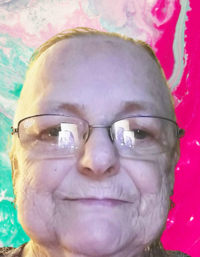14
Chiapas Education Project on Instagram: "🌈✨ “Andy, that’s not true.” 😐 During a Texas House debate, Rep. Lauren Ashley Simmons reminded Rep. Andy Hopper that intersex people exist after he tried to slash funding for LGBTQIA+ and DEI programs by denying them. Even his own colleague had to fact-check him on chromosomes. There isn’t just one chromosome pattern for intersex people — “intersex” describes a variety of natural variations in sex characteristics, and chromosomes are only one part of that. Some intersex individuals have XY chromosomes, some have XX, and others have different combinations. A few examples: • XXY (Klinefelter syndrome) → Someone has an extra X chromosome. • XO (Turner syndrome) → Someone has only one X chromosome. • XYY → Someone has an extra Y chromosome. • Mosaicism → Different cells in the same body have different chromosome patterns (for example, some XX, some XY). • Typical XX or XY → Many intersex people actually do have “typical” XX or XY chromosomes, but their bodies develop differently in terms of hormones, gonads, or genitalia. So, intersex isn’t defined by one chromosome set — it’s an umbrella for many variations in chromosomes, hormones, or anatomy. That’s why the claim “there are only two sexes” ignores the biological reality of human diversity. This moment shows why our voices matter. Too often, the lives of intersex and Two-Spirit relatives are treated as an afterthought — when in truth, they are sacred and deserve protection. 🪶 In a world that tries to misunderstand and erase them, we gather in faith, prayer, and ceremony to affirm: you are welcome here. 🌈 DRUM CIRCLE POTLUCK & PRAYER GATHERING For Our Two-Spirit & LGBTQ+ Relatives 📍 St. Andrew’s Episcopal Church 111 NE 80th St, Seattle 📅 Saturday, Sept 13 | 1–3 PM Hosted by Chiapas Education Project & Ethnic Ministries Circles of Color #AllMyRelations #TwoSpirit #Intersex #LGBTQ #PrayerGathering"
www.instagram.comWatch as Rep. Venton Jones is challenged about cutting programs that provide life-saving care, and hear the powerful words of a lawmaker speaking up for our intersex and Two-Spirit relatives. Learn how you can support them at our upcoming DRUM CIRCLE POTLUCK & PRAYER GATHERING.

“Intersex” is confusing/misleading, DSD is the better term, there are male DSDs and female DSDs. Sex in humans is binary and immutable, because it’s defined by gamete size. Chromosome differences are variations within a sex.
But that’s the whole point of separating gender and sex. Don’t try to turning sex into something it’s not, focus on gender.
The word intersex is used mainly because actual people out there would rather be regarded as sitting on the blurry line between the imperfect categories that our meat computers want to pattern-recognize, rather than “Disorders” of a “binary and immutable” yet somehow very accident-prone nature. I really fail to see what is confusing or misleading with that, just switch your heaviside with a sigmoid, put the quigley scale around 0, you’ll be fine.
You should read the “controversy” part at least, your article is interesting
Sure, but all that imperfect categories and blurry lines and whatnot is exactly what gender is for. The controversy section is indeed interesting but not really relevant. It’s good to use more specific terms like CAIS when appropriate, but if you want some term to refer to all such similar situations, intersex shouldn’t be used.
Sex is simple and serves an important purpose in biology. If we redefine sex into something that isn’t based around gamete size then biologists are just going to make up a new word that means what sex used to. Biology is hard and messy and discovering such a widespread rule is a major scientific win.
Gender is not “for blurred lines”, it’s about social constructs, and society happens to be a complex emergent system, so its binaries tend to be approximative at best. The point of separating it was not to deal with blurred lines, but to deal with sociology in an unequivocal manner.
Sex is about biology which is also a complex emergent system. You may assert that sex is binary and immutable in the whole field of biology, and I don’t know what your credentials are to support this claim but my sources beg to differ. I’ve read and heard biologists use different definitions for different subfields and contexts, and argue that none is a simple binary when you start to look at individual expressions. Even your article starts with three qualifiers for sex: “anatomical gonadic and chromosomal”, and deals specifically with people who may have none or both gametes. So much for the major scientific win of an immutable binary.
You seem to be decided on one definition having the primacy over the others and I get why: gamete size is basically the first logical step of the male/female differenciation in species, so it makes sense when your study is about reproductive strategies across species and how sexual differenciation is so widespread. I’m not sure it’s going to make as much sense when your field of study is embryo morphogenesis or ethology, though.
All the biologists I’ve met or read are actually fairly used to “sex” meaning different things in different contexts, and they’re absolutely going to be fine with people calling themselves intersex if they don’t want their biological singularity defined by a disorder.
Also, did you read the part in your own article where they said the nomenclature “DSD” was decided in Chicago when a bunch of doctors thought maybe “hermaphrodite” and “intersex” was maybe pejorative? It’s okay to just ask the people who actually have it what they prefer and use that, it’s just phonemes, it’s fine. No scientific content is removed by being considerate.